To purchase a copy of Thomas Mayo’s book Always Was Always Will Be click here
Charles Pakana (VAN):
Today, the 14th of October 2024 marks the first anniversary of the failed referendum that asked Australians to approve a First Nations voice to Parliament, to be enshrined in our constitution. During the campaign leading up to that referendum, there were few yes campaigners, more staunch and unwavering, and at the same time, so viciously vilified, racially, politically, and personally as Thomas Mayo. He joins us today not just to reflect on the referendum, but as he writes in his book, Always Was, Always Will Be to look forward with purpose. Thomas, thanks for speaking with me today.
Thomas Mayo:
Thanks, Uncle Charles.
Charles:
Thomas, let’s start with that comment, which regardless of what at a glance you may seem to be writing about in various sections of the book, the ultimate goal is clearly to provide Australians with a basis upon which to continue moving forward with purpose. When it comes to it, what are your hopes for the future when it comes to those three key calls from the Uluru Statement, truth, Makarrata and voice?
Thomas:
Well, I mean the greatest hope and the most just thing for us to call for is equality, equality and outcomes, that there isn’t a gap anymore and that’s the work that we have ahead of us is to make sure that indigenous children have the same expectations as non-indigenous kids, and that’s just not the case right now. The gap is very real. The difference in life expectancy and all the other things that I know people are aware of, especially people that are listening now.
And I think most Australians knew there was a problem that needs to be addressed, that there is a wrong that needs to be righted and I hope that we achieve that and we need to.
Charles:
Do you believe that we still need those three key calls in order to achieve this and other measures in closing the gap, that truth, Makarrata and voice. Are all three still relevant?
Thomas:
Oh, absolutely. The Uluru Statement from the heart is as relevant as ever. It’s no less truthful, no less true to the past, no less awakening in that people need to realize that there’s not a hundred percent of children in youth detention in the Northern Territory because indigenous children are innately criminal. There’s actually a deeper problem here to do with trauma, to do with failed policies over a very long period of time. And because of racism and prejudice, those are the reasons. The Uluru statement is also no less logical.
I mean, of course we should listen to a people that decisions are made about, of course we should be for truth telling and not for ignorance, and of course we should settle this long injustice with agreement making.
Charles:
I’m just going to read a paragraph from the book and it’s one that I quoted in the webinar yesterday. It goes, “I say to all who will listen, read the Uluru Statement from the heart, share it, teach your children about it, put it up on your wall, commit to walk with us for voice treaty truth as it invites you to do.” It continues to be a call to action for Aboriginal and Torres Strait Islander people to this nation. Those are really poignant words, Thomas, and we’ve talked on those just briefly right now, it is a continued call to action. We’ve spoken a bit about going forward with purpose.
At the end of the book, you actually provide 23 suggestions for those who wish to collaborate with First Nations people and walk with us for a better Australia, to paraphrase that last sentence of the Uluru Statement. Do you believe that that groundswell of support that we saw within the YES Campaign, those thousands upon thousands of people who fought for a yes vote, do you believe that they can be re-mobilized because so many have melted away into the bushes?
Thomas:
Yeah, absolutely. I think most Australians still want change and certainly those that volunteered for the first time in their lives for something that was really about a political decision. They just need to regain their hope and that’s what I try to do with the first chapter of the book is to say to people just understand that we are actually moving forward still. It might’ve been a loss at the referendum, but we’ve always experienced no before we eventually achieve yes. The fact that Aboriginal and Torres Strait Islander people overwhelmingly voted yes is a big part of that momentum now, the fact that young Australians voted yes.
Well over 60% of young Australians voted yes. That is something also that gives us great hope and we just need to do the actions. We just need to have the courage and the will to continue to move forward and I know people struggle to work out how, and that’s what that particular part of the book does in those 23 points.
Charles:
Let’s touch base on what you refer to in the book as bad actors, and I noted with interest your reference to past Trump’s strategist, Stephen Bannon’s quote of “Flood the zone with shit.” Now, the full quote being from a 2018 interview when he said, “The Democrats don’t matter. The real opposition is the media and the way to deal with them is to flood the zone with shit.” Before we move on to your preferred and much more palatable wording, we’ll start with how that flood the zone with shit strategy you saw playing out during the referendum. Who were the main players in giving that life?
Thomas:
Well, to take those actions, you’ve got to understand what you’re up against as well. And during the referendum we were up against the coalition and when David Littleproud in late 2022 and then Peter Dutton in early 2023 decided that they would not even allow a conscience vote in their opposition party about the referendum from their members of parliament, we saw a very quick flip from 60% support in this country for the proposed reform to 60% against. And I resisted in the book talking about Peter Dutton and David Littleproud.
Charles:
I did notice that. Yes, it was quite refrained of you.
Thomas:
Yeah. Well, the reason why is because there’s always going to be bad actors and bad actors are the type of person that would use their energy to work towards selfish outcomes, whereas the rest of us, and I call it the rest of us, we use our energy to help ourselves and to help our families and our communities not at the cost of others though, right?
Charles:
Yeah.
Thomas:
And that’s the difference there. The likes of Peter Dutton did what they did during the referendum knowing that they were going to harm indigenous people. I think they understood what they were doing because they had so many reports in their time in government around 10 years that said to them that the way to close the gap is to have some structural reform that ensures indigenous people are at the front of decision making. So bad actors are what we’re up against, and it’s also those in the media that play to that niche, those that we see that vilify us on social media.
There is a section of the media that has a business model based on that ignorance and plays on people’s prejudices. And those are the things we’re up against. We need to understand that because that’s what our friends. The number one in those 23 points is to continue to have conversations, and so that means that we’re going to be continuing to interact with people to help them to become familiar with indigenous culture and history so that they can resist the lies.
The next time this opportunity comes around, we can have some structural reform. And familiarity is one of the reasons why the referendum failed. If people knew us, if they understood indigenous culture and the truth about our history, then they would’ve been able to resist the lies.
Charles:
And I think you’ve done quite an amazing job in encapsulating a lot of that. I particularly enjoyed reading your description of Makarrata of that coming together after conflict process, the concise history of so many things that have happened, the massacres, the abductions, the calling out clearly of slavery despite some of the conservative politicians denying that ever happened, but I think a lot of this calling out is providing people with that information that I can have these conversations. And that does bring me to the alternative wording to that flood the zone with excrement from Steve Bannon, and that is to flood the zone with truth and hope.
Was that one of the ideas that you had in your head as you wrote this book in providing this rather moving content and inspirational content was to provide people with that information that they could sit down, have these conversations with a degree of authority?
Thomas:
Yeah. We need to resist the lies that are spread about indigenous people and the way we do that is to flood the zone with truth and hope. Indigenous Australians are full of truth and hope. We’ve got to be, otherwise we wouldn’t have achieved the things that we have, the many things that we’ve achieved. We didn’t have the right to vote. We were paid in rations. We were slaves in this country right up until early 1970s. We didn’t have land rights. We didn’t have native title. We couldn’t even buy a home back in my father’s lifetime.
Our lives were completely controlled by a white chief protector in living memory. I mean, these are things that we have overcome, and so we are full of truth and hope and we need our allies that walked with us. Almost half of the Australian population, to dust themselves off and to continue to move forward and to fight for the change that they know is just. And flooding the zone with truth and hope is what they can do. Just resist that.
There’s some guidance on social media. I recommend people not to interact with the racists and bigots that are on there, the keyboard warriors, but to simply respond with some truth and then block them. And continue to post and not be intimidated by them that pile on and try and silence anyone that speaks up for good.
Charles:
You actually made mention of… You suggested to find common ground with people, to listen to those people regardless of their viewpoints on Makarrata, voice and truth telling. But to sit and listen and then seek to find common ground, how important do you think that is going to be going forward if we’re to achieve this equality?
Thomas:
Well, during the referendum campaign, and I’d been on the road for a long time, it was around six years by the time the referendum was held, the experience that I gained is that you’re going to change people’s minds more by listening and understanding what their misconceptions are. Having some patients, presenting them with some facts and when things get heated, you can always revisit it. We don’t have the same sort of timeline, a deadline like we did during the referendum. And so I say to people to listen, work out what the misconceptions are, use books like mine and others and various sources of information to present them with some facts and some things that cause them to think more deeply and to then help them to resist the shit that they try and flood the zone with around about indigenous people.
But there’s also a bit of advice about it’ll take some time. It’s a bit of practice to learn when you’re wasting your time with someone, if they’re an absolute racist and bigot, and it’s going to harm your own mental health to interact with them, you walk away. Don’t waste your time with them. Find people with open minds though they’re the people that we need to talk to.
Charles:
I noticed in the book that there were times where… And I’ve got to admit, I tried to get into your mindset as I was reading certain sections of the book and in the section where you spoke quite starkly about some of Australia’s modern history since invasion, you were unapologetically brutal in this. You emphasized Pemulwuy, Bennelong, Aravenu, the mass deaths caused by smallpox, the increase in massacres around the time of federation. Was this an intent of yours to be, well not say brutal, but to afford a degree of shock to the reader?
Thomas:
Well, yeah. I mean, our history is brutal to indigenous people and the intent is only to be truthful about that. And the effect I hope, is that it puts the fire in people’s bellies before they reach the chapter that is all about action. So the book is in three parts. It begins with hope because we need to find that again, that energy that we can spread and help others to come with us. We need the motivation, the anger, the disgust, the want for change because of all that has been done and the history chapters go all the way to the present date basically.
It’s not just about early colonial times. It goes all the way to the referendum itself, but only to celebrate the achievements to mark those historical things that people did in favor of it. I’ll leave the rest of the analysis up to other books that are out there already. But I mean I want people to feel motivated before they get to the action chapters.
Charles:
As someone who is quite involved in the political forums in this country, being a union official and also because of just your activism across the country, have you noticed changes in attitudes from the more conservative elements of politics as a result, a direct result of the referendum and maybe seeking to capitalize on the increase in, I don’t know, look, let’s just say it, the increase in racism?
Thomas:
Well, what I’ve seen is a concerning trend of politicians that we thought were on our side and were progressive, basically being intimidated by the tactics that we saw through the referendum and the tactics that continue, which is based on the misconceptions and lies that I was talking about out there, that the Australian populace are affected by when it comes to indigenous affairs. To walk away from the Makarrata Commission, I think is a mistake by the government.
The commitment should be followed through, and there should be the courage to stand up against that intimidation tactic that Peter Dutton and the coalition are using, and that section of the media that I mentioned. Why wouldn’t Australians want truth telling? Take that on. What has Peter Dutton got against the truth? Does he prefer ignorance and lies? Do we want a person like that running this country? I mean, that’s the narrative that should come from this resistance to the truth about our past and moving forward in indigenous affairs and just giving us a bloody say and some decency.
Charles:
I did note that you did make mention in your book that in mentioning Kevin Rudd’s apology that Dutton was the only front bencher to leave and boycott that particular thing. We won’t belabor that right now, but I noticed that with a degree of humor, because you did not focus on Dutton and other conservative leaders and even conservative media, which I thought was a great opportunity to do so on your book. But was that an intentional thing to not necessarily point out these people and call them to account to the degree that you could have done?
Thomas:
I wanted to focus on going forward, and I wanted the book to be a lasting and useful tool for people against the bad actors like Peter Dutton, and that’s the reason I made that decision. People can work it out for themselves.
Charles:
Sure.
Thomas:
And I’m certainly not backwards in going forwards in this conversation and many others that I’ve had on the radio and on TV. But as far as the book goes, it’s an example of how we can move forward by not dwelling on individuals like him and not mentioning people like Senator Price that said that there was no ongoing negative impact from colonization. I do address the things that she said at the press club in a section of the book, which basically lays out the lies that people will continue to hear and gives them the tools to pull those apart and to debunk those myths and that type of thing.
But it’s an example, and the only way that we bring people along is to do those actions and not dwell on the past and hang on to some personal vendettas.
Charles:
As we move forward with purpose, it brings to mind a comment from Professor Andrew Gunstone that I’ve heard him make mention of several times. Professor Gunstone being the founder and director of the National Center for Reconciliation, Truth and Justice, where he calls for Australians to pursue a path of substantive reconciliation rather than performative reconciliation and briefly rather than just wearing a T-shirt once or twice a year, but to get out there and be in the trenches with and Torres Strait Islander people and actually take action on a regular basis. Is that ongoing substantive work a prerequisite in achieving this justice and this equality that’s being called for in your book?
Thomas:
Yeah, it is. I agree with Andrew. It needs to be more than performative and substantive action is important. And some of those forms that I share in the book is organizing groups to work on changing the names of places like was done with Fraser Island to K’gari establishing memorials with local Aboriginal and Torres Strait Islander people where there were massacres working with them on that. There’s some great examples of that sort of solidarity that has led to those things, and there’s always going to be resistance against those things, but that’s the where you can really take substantive actions.
Make those changes, continue to acknowledge country and to support welcomes to country. There’s a resistance against those things now as well. So I agree with Professor Gunstone, those substantive action is where it’s at. The thing that I do that’s I think a bit extra in this book is to help people understand where they fit in that whole scheme, though within the campaign with a formula for justice and recognition, and I hope that helps people.
Charles:
Just building on the points you made previously about getting involved in campaigns, one of the other things that I want to point out and talk to you about briefly is that point number eight in your essentially calls to action was join the Raise the Age campaign. Now, we know about raising the age campaign as it’s been played out right across this country, but is it important that people also realize that in these campaigns being championed by First Nations people, that the broader community also will benefit.
And this is very important. We know that the voice would’ve brought about significant. If we look at it just from a financial perspective, massive savings to the public coffers by keeping people out of detention, by reducing the impact on the public health system. But is it important that these messages where voice, treaty, truth are going to benefit all Australians and not just First Nations?
Thomas:
Raise the Age campaign is really important, uncle. I think, as you say, locking people up and especially children at 10 years old does not help them, doesn’t help the child, doesn’t help the family, and doesn’t help the broader community, doesn’t help the victims of crime. The 0.8 is just an example of a practical way, another practical way that people can get in the trenches with us as Professor Gunstone says and join the campaign. It’s common sense that I think that if you care for people, then you’re going to get better results than if you just lock them up and harm them for the rest of their lives.
Charles:
We will be providing a link to this important book, Always Was, Always Will Be by Thomas Mayo on our website. So get on there to vicaboriginalnews.com.au. You can listen to this interview again and of course read the full transcript. And most importantly, for anybody who is seeking to work out where to go next, then I could not recommend this book more highly. Thomas, thank you so much for the generosity of your time and joining us here on the VAN Talks podcast.
Thomas:
Thank you, Uncle Charles.


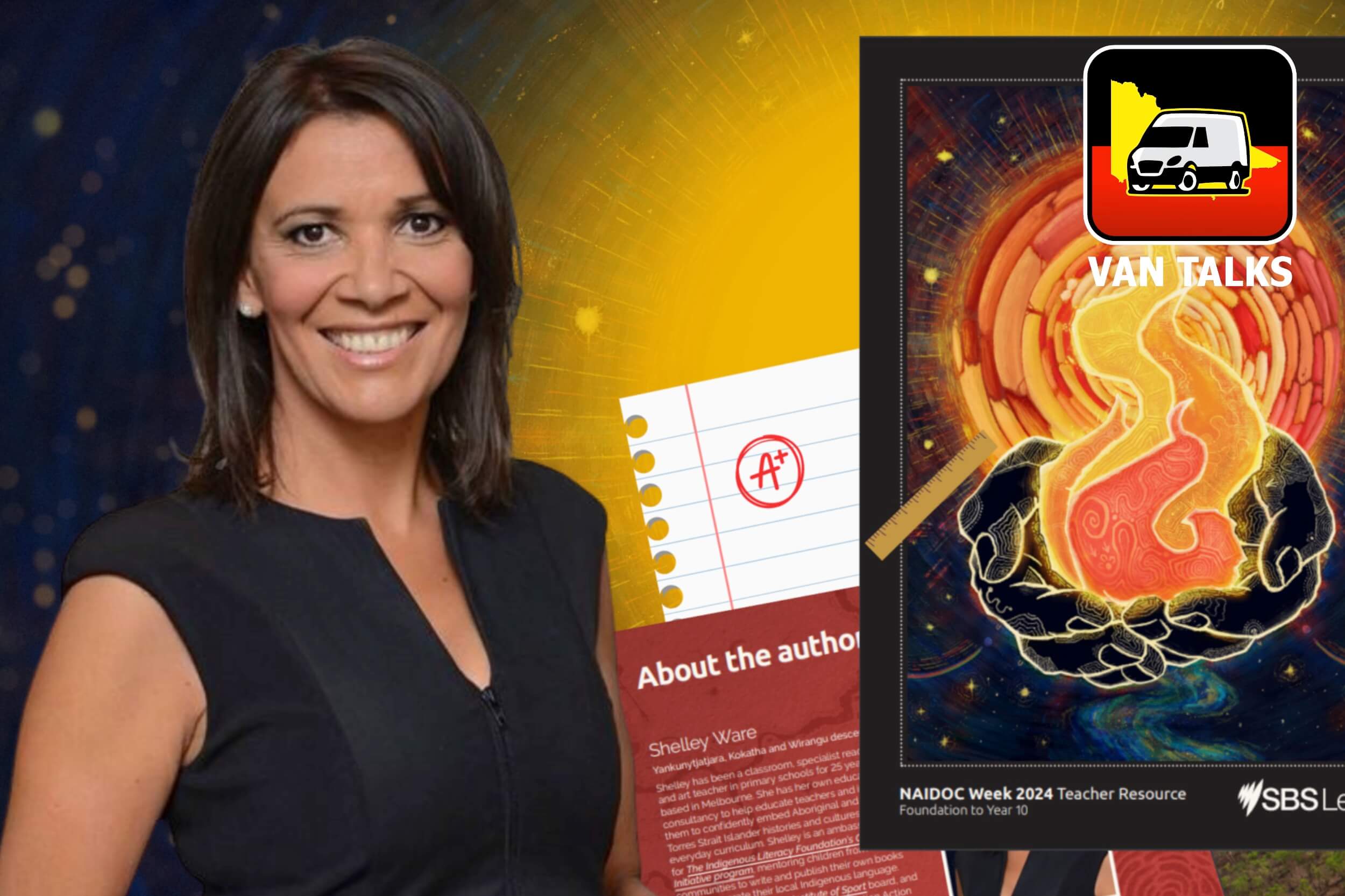
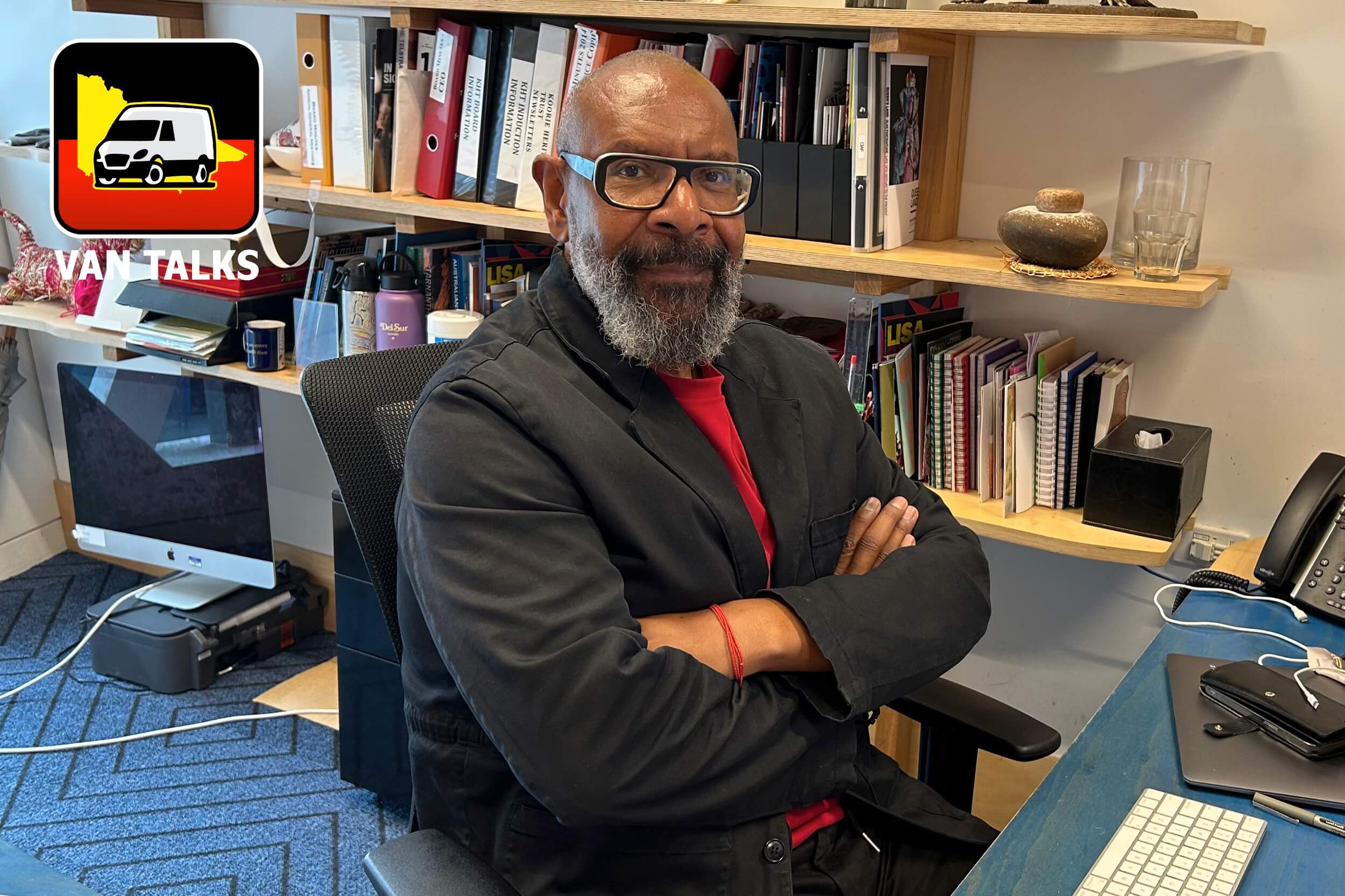
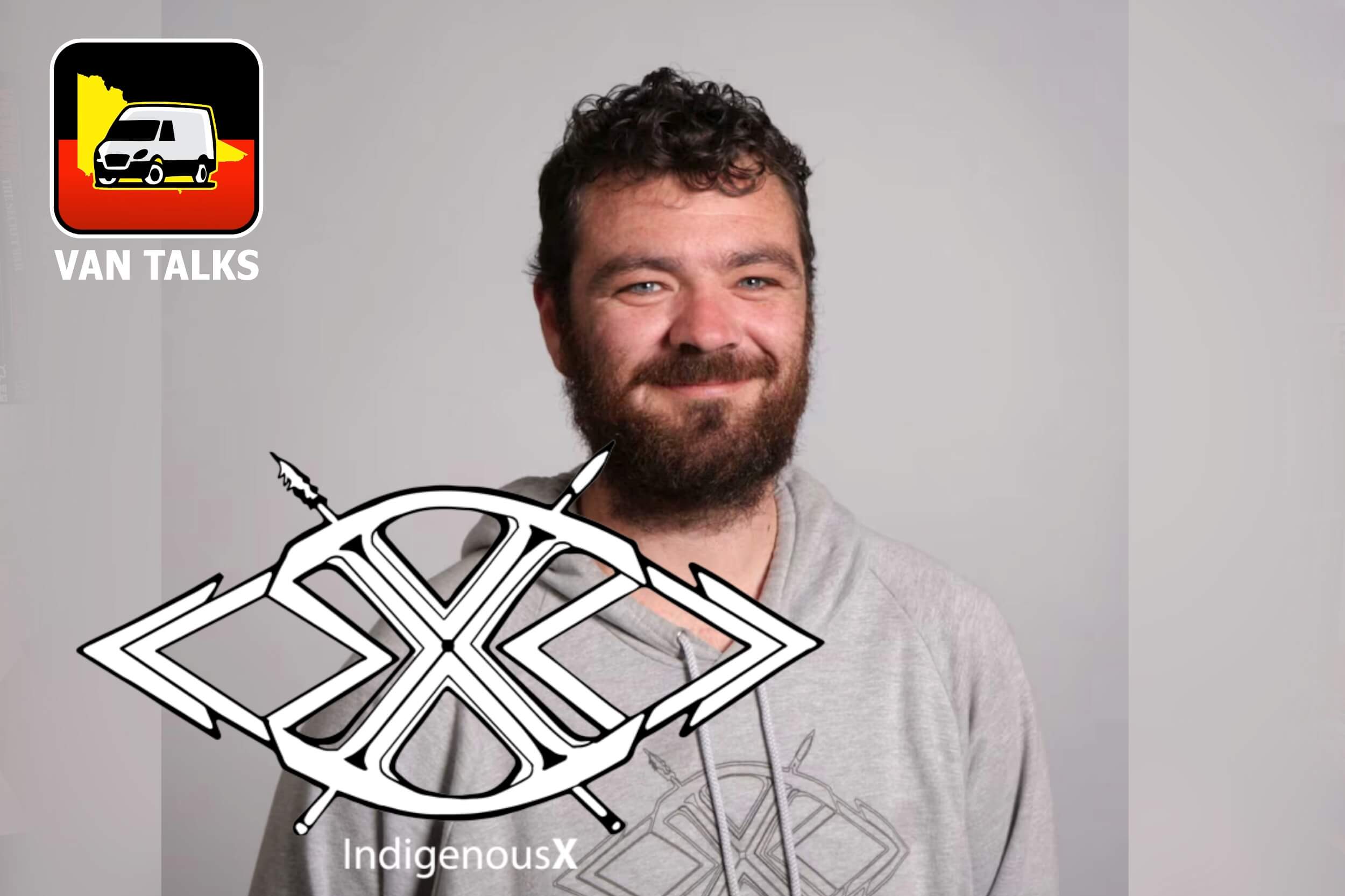
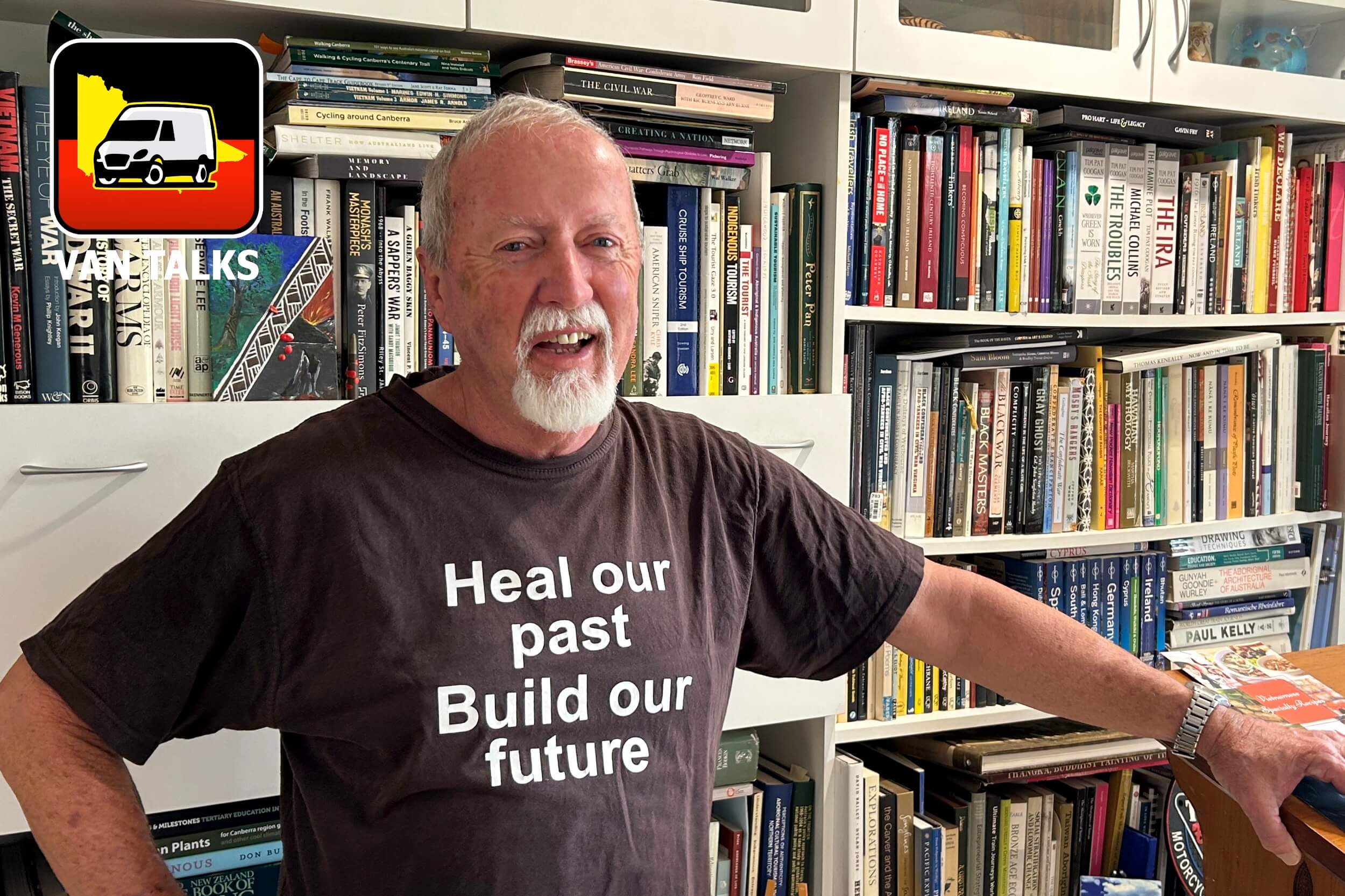
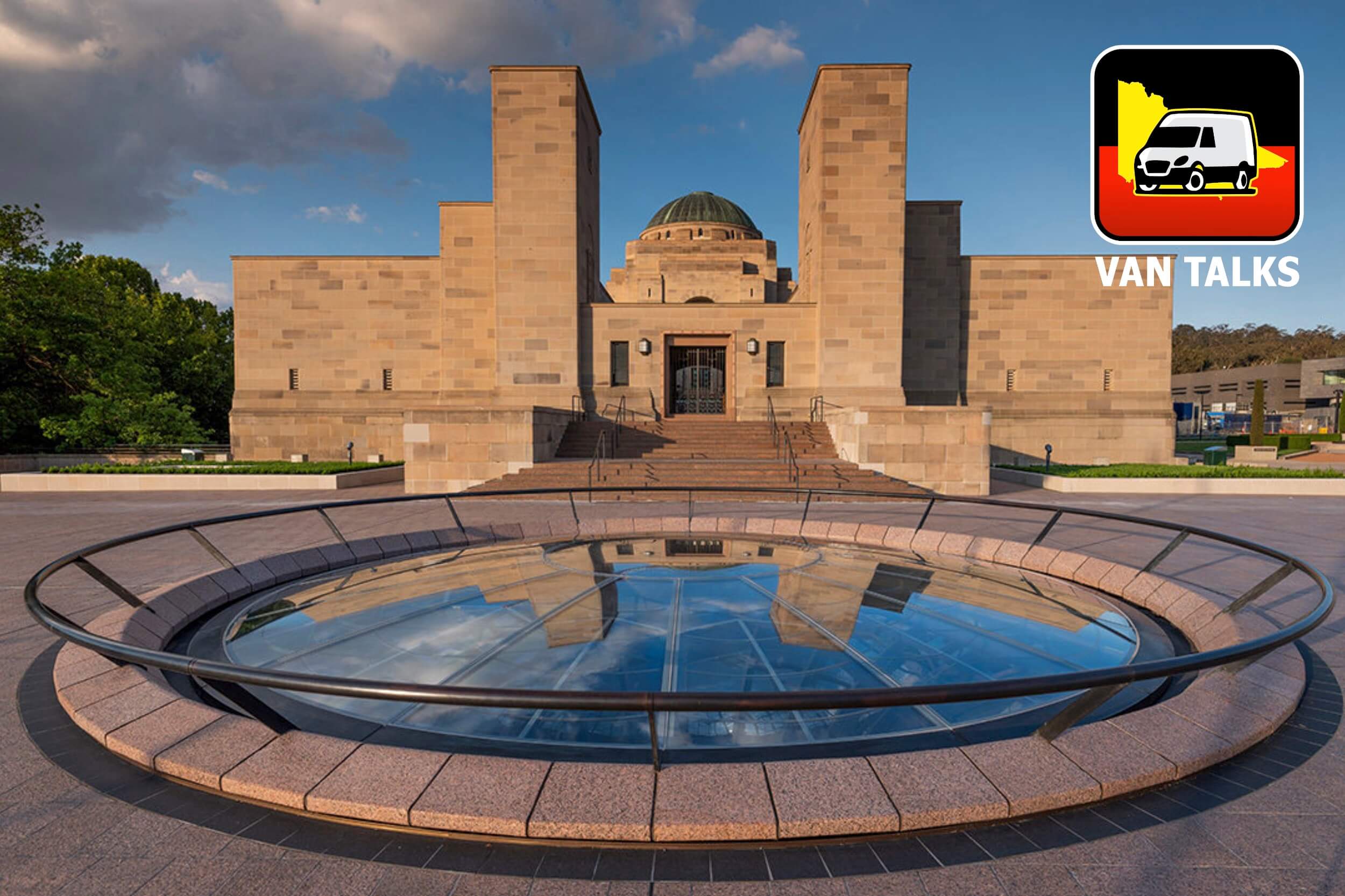

0 Comments